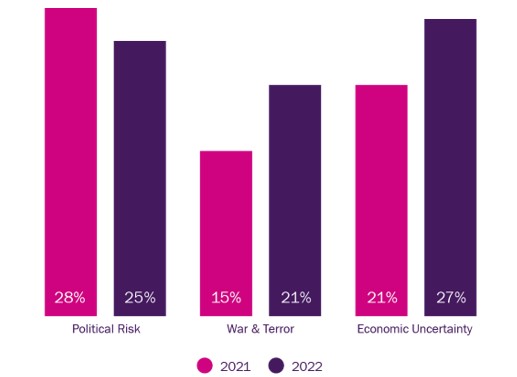A lack of awareness around the dangers of workplace slips, trips and fall persists in UK workplaces, with a significant impact businesses and their employees. This is among the findings of a new report into workplace STF, published today by accident prevention charity, The Royal Society for the Prevention of Accidents and insurer, RSA.
The research, which canvassed the opinions of nearly 3,000 people, found that 60% of decision makers have no dedicated STF prevention programme in place. Some businesses reported losing in excess of 100,000 hours (4,167 days) working time a year due to STF and data from RSA indicates that the average claim for a slip, trip or fall is £25,000.
Andy Jones, risk consulting director at RSA said: “We understand businesses and decision makers are under significant pressure with everything that is happening both inside and outside of their businesses, but workplace slips, trips and falls haven’t gone away. The research highlights that an increased focus on this type of risk is clearly needed for us to move the dial, enabling businesses to better manage and drive out STF incidents.
“Employers need to better understand both the human, as well as financial costs, associated with this type of accident and understand they are not inevitable and can be managed. We need to move from a 'it's human nature', 'it can't be managed', 'it's unpreventable', type attitude to more of a 'we recognise the cost and importance of preventing STFs and we are taking preventative measures to eliminate this risk from our business.”
Nathan Davies, executive head of policy and portfolio at RoSPA added: “The results show that there is a significant proportion of business decision makers who really don’t see STF as important. The very fact that inevitability, inaction and blame was prevalent in this report suggests that STF are essentially a hidden issue for many employers.
“More specific action is clearly needed in many, many workplaces in the UK. The negative perceptions and beliefs portrayed in the report, need to be challenged. Business decision makers need to be educated on the causes and direct and indirect effects of STF. These decision makers would also clearly benefit from support on how to put in place effective prevention strategies.
“The results also indicate that prevention strategies will directly benefit the bottom line of businesses by securing direct and indirect cost savings, not least from saving the time lost by staff.”
Printed Copy:
Would you also like to receive CIR Magazine in print?
Data Use:
We will also send you our free daily email newsletters and other relevant communications, which you can opt out of at any time. Thank you.











YOU MIGHT ALSO LIKE